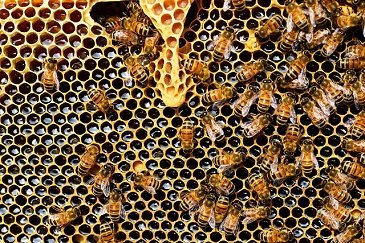Honeybees may solve antibiotic resistance crisis
September 20, 2014 | Saturday | News | By BioSpectrum Bureau
Honeybees may solve antibiotic resistance crisis
Bacteria in honey bee can combat a broad spectrum of antibiotic resistant organisms
With antibiotic resistant bacteria threatening the advances made in medical sciences, researchers across the globe are hunting for newer methods and techniques to combat potent strains, which may challenge the existence of mankind.
Researchers from the Lund University, Sweden, claim that the bacteria found in honeybees could be used to fight against antibiotic resistant bacteria like MRSA. Scientists believe that the 13 types of lactic acid bacteria found in the gut of bees, formulate a unique myriad of anti-microbial compounds that shows promise in combating worst infections.
To conduct the study, researchers isolated the 13 bacteria and tested on a number of human wound pathogens such as methicillin-resistant Staphylococcus aureus (MRSA), Pseudomonas aeruginosa and vancomycin-resistant Enterococcus (VRE). The researchers found when the lactic acid bacteria were applied to pathogens in the laboratory it effectively combated them.
Dr Tobias Olofsson of the Medical Microbiology department at Lund University, explained, "The formula contains a broad spectrum active substances, unlike conventional antibiotics. However, the store brought honey does not contain the live lactic acid bacteria and hence many of the properties are lost."
He added that the findings could be vital in both developed and developing countries that are currently facing the threat of emerging antibiotic resistance bacteria in the population.
Scientists said that the study will be further investigated to prove the clinical applications of these useful organisms.









